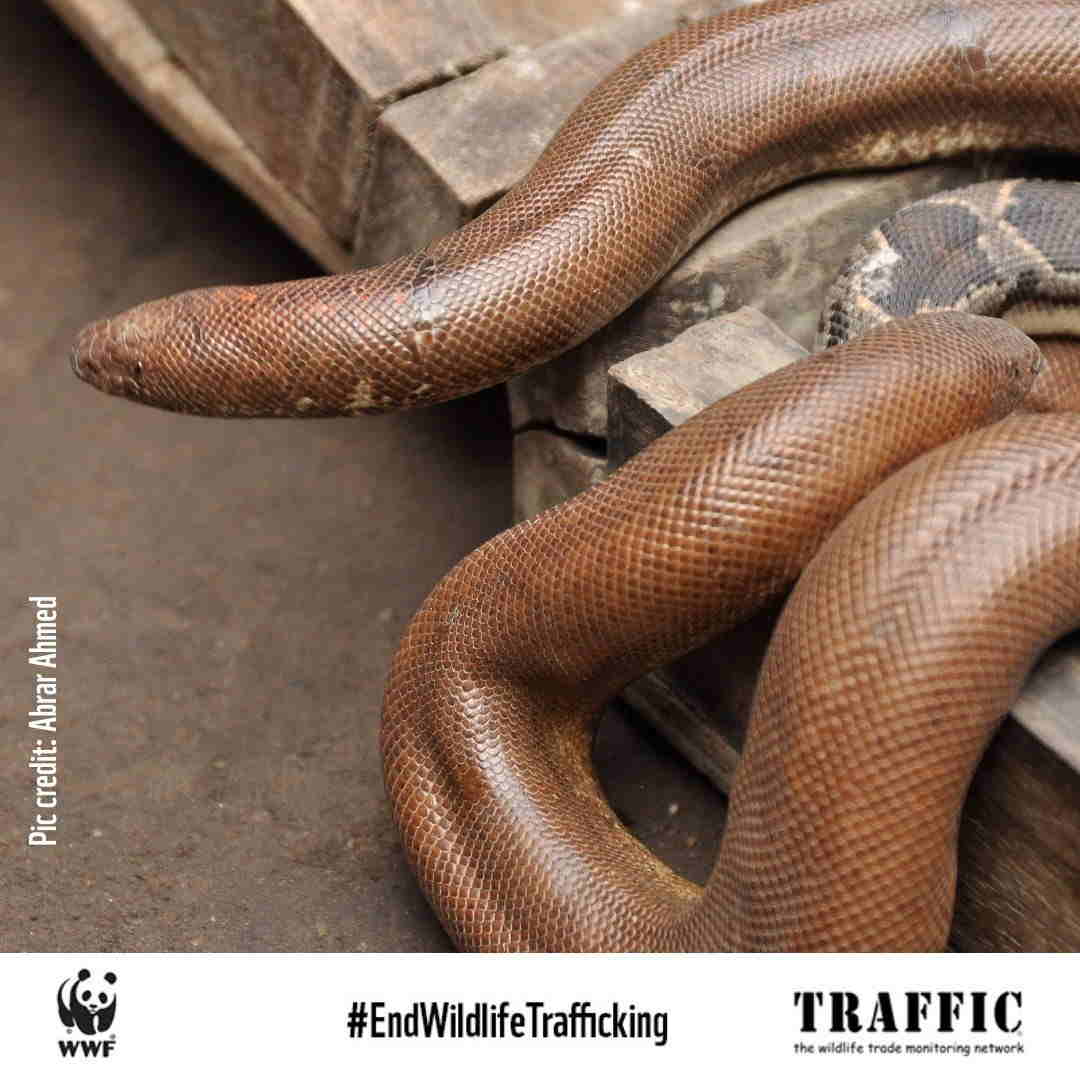

Red Sand Boa
<p>
The World Wildlife Fund-India and TRAFFIC India Office have launched an online campaign to raise awareness on the illegal trade of the Red Sand Boa (<em>eryx johnii</em>), or what is known as the &ldquo;double-headed snake&rdquo;. This species is protected under the Schedule IV of Wildlife (Protection) Act, 1972 and any sale, purchase or possession of the species is a punishable criminal offence.</p>
<p>
TRAFFIC India Office Head Saket Badola said that despite its important ecological role and protection status in the country, the Red Sand Boa is heavily trafficked. &quot;This illicit trade is adversely impacting wild populations, so it is imperative that law enforcement agencies understand this ecologically important species better and take stride to curb the illegal trade of this snake in India,&quot; he urged.</p>
<p>
Known commonly as the &ldquo;double-headed snake&rdquo; owing to its blunt trail that resembles its head, the non-poisonous snake ranks among the most traded and expensive reptiles in India currently.</p>
<p>
In recent times, reports suggest an upsurge in demand for this snake across the domestic illegal markets, mainly due to the new age superstitions attached to them and an increasing quest to own them though it is deemed illegal under Indian laws. Depending on size and weight, wildlife officials say the prices of the Red Sand Boa in the black markets range anything from Rs 30 lakh to Rs 1 crore in India and much higher in Asian countries for this snake species is endemic to India, Pakistan and Iran.</p>
<p>
To highlight this TRAFFIC India Office along with support from WWF-India — headed by eminent industrialist Jamshyd N. Godrej started the online campaign to highlight the issue with the key message: &#39;Owning is Stealing&#39;. The campaign seeks to enlighten people that not every wild animal belongs to their homes, urge them to avoid buying such protected species as pets since their actions can adversely impact wild populations of such species.</p>
<p>
The snake is critical to the ecosystem as it helps maintain healthy balance between the predators and the prey by feeding mostly on rodents, lizards or even other snakes. Badola observes, &quot;We need to rethink our relationship with the Red Sand Boa. It has countless benefits when it remains in the wild, playing an important ecological role that also supports farmers by reducing crop damages by rodents.&rdquo;</p>
<p>
<em>(IANS)</em></p>
Germany has come out resolutely behind India and its fight against terrorism under Operation Sindoor.…
Baloch leader Mehran Marri has accused Pakistan of unlawfully occupying Balochistan since 1948, transforming the…
The Trump administration announced on Wednesday that it will continue its efforts to prevent advanced…
External Affairs Minister S Jaishankar met with German Chancellor Friedrich Merz in Berlin on Friday…
The Central Tibetan Administration (CTA) launched a Month-long Panchen Lama Awareness Program aimed at educating…
India's Ambassador to Russia, Vinay Kumar, on Friday, briefed the all-party parliamentary delegation, led by…